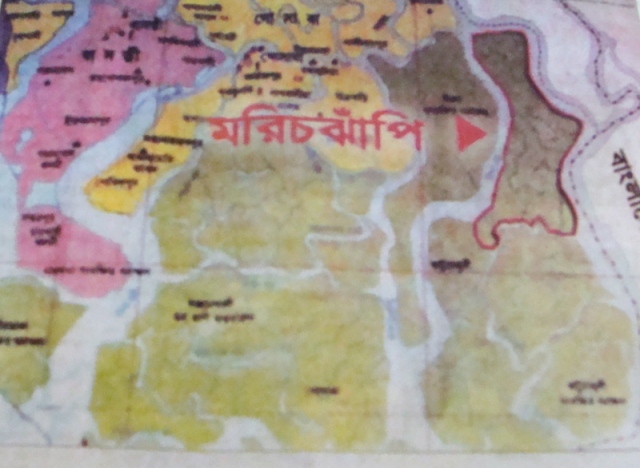ভারতের জাতীয়তাবাদী ইতিহাসচর্চায় স্বাধীনতা একটি মহান ও পবিত্র বিজয়ফলক হিসাবে স্বীকৃত। জাতীয়তাবাদী আন্দোলন তার কাঙ্ক্ষিত পরিণতি লাভ করে স্বাধীনতা অর্জনের মধ্য দিয়ে। আরও সুস্পষ্ট রূপে বললে একটি জাতিরাষ্ট্র প্রতিষ্ঠার মধ্য দিয়ে। সেই স্বাধীনতা অর্জনের জন্য জাতীয়তাবাদী নেতৃবর্গ দেশভাগের সিদ্ধান্ত মেনে নিতেও পিছপা হননি। জাতীয়তাবাদী ইতিহাসের প্রকল্পে দেশভাগ ও তদ্জ্জনিত দুর্ভোগ ছিল নেহাৎই একটি মহান লক্ষ্য পূরণের জন্য কিছু মানুষের সামান্য আত্মত্যাগ। স্বাভাবিকভাবেই দেশভাগ বহু বছর ভারতের ইতিহাস চর্চায় উপেক্ষিত থেকে যায়। স্বাধীনতা উদ্যাপনের আনন্দোৎসবে ঢাকা পড়ে যায় দেশভাগের ফলে উৎখাত হওয়া মানুষের স্বজন ও স্বদেশ হারানোর হাহাকার। বিগত সহস্রাব্দের শেষ দশক থেকে দেশভাগের অভিজ্ঞতা নিয়ে এক নতুন ধরনের ইতিহাসচর্চা শুরু হয় মূলতঃ উত্তরভারতে, বিশেষ করে পাঞ্জাবে। এর রেশ এসে পড়ে পশ্চিমবঙ্গেও। সম্প্রতিকালে পশ্চিমবঙ্গে দেশভাগ নিয়ে ব্যাপক গবেষণা ও আলোচনা হচ্ছে। এর অনেকটাই স্মৃতিনির্ভর। এই ধরণের ইতিহাসচর্চার মধ্য দিয়ে স্মৃতি, সাহিত্য ও ইতিহাসের লক্ষ্মণরেখা ক্রমশঃ লুপ্ত হয়ে যাচ্ছে, যা বিশেষভাবে লক্ষ্যনীয়। ইতিহাসের এই পদ্ধতিগত অভিযোজন নিয়ে যে বিতর্ক আছে তার মধ্যে না গিয়ে এই প্রবন্ধে তুলে ধরার চেষ্টা করব স্বাধীনতা ও দেশভাগের সমসায়িক বাংলার সৃষ্টিশীল মানুষরা কি ভাবে দেশভাগকে দেখেছিলেন। বাংলা কবিতা ও গানে তার প্রতিফলন কেমন হয়েছিল।
Archive for the ‘উদ্বাস্তু ও জবরদখলকারী’ Category
স্বাধীনতার অন্য মুখ ঃ বাংলা কবিতা ও গানে দেশভাগ
Posted by bangalnama on August 31, 2009
Posted in ইতিহাস, উদ্বাস্তু ও জবরদখলকারী, কলকাতা, কলোনী, ক্যাম্প, জাতি, জাতীয়তাবাদী আন্দোলন, পরিচয়, পরিযাণ, পূর্ব পাকিস্তান, বঙ্গভঙ্গ, বাংলাদেশ, রাজনীতি | Tagged: Achintya Kumar Sengupta, উদ্বাস্তু, দেশভাগ, সুনীল গঙ্গোপাধ্যায়, Bishnu Dey, Boundary Commission, Chithi, Gaza Strip, Gyan Pandey, Hemanga Biswas, histriography of partition, Indian nationalist movement, Jasimuddin, Mangalacharan Chattopadhyay, Manindra Roy, Marya Manne, Nakuleswar Sarkar, nationalist historians of India, oral history of partition, Paul Muldoon, personal history of partition, Sankho Ghosh, Surendra Nath Sarkar, The Prose of Otherness, udbastu, Urvashi Butalia, W. H. Auden | 1 Comment »
The Waiting Rooms of History
Posted by bangalnama on July 6, 2009
Do you remember, Kolkata
That green passport, my dark green shirt;
Arriving, drenched, at Sealdah Main
That day on the train from the border
I saw a shoeshine boy for the first time in my life.
It was a thrill, my dream city,
My first tram-car, my earliest first-class,
Read the rest of this entry »
Posted in উদ্বাস্তু ও জবরদখলকারী, কলকাতা, কলোনী, ক্যাম্প, পরিযাণ, পূর্ব পাকিস্তান | Tagged: Amritabazar Patrika, দেশভাগ, Buriganga, Dhaleshwari, East Bengali refugees, Kolkata, Narayangunj, Padma, refugees at Sealdah station, Tarapada Roy, Tippera riots | 3 Comments »
The Silence of Marichjhapi
Posted by bangalnama on July 6, 2009

“Millions of babies in pain
Millions of mothers in rain
Millions of brothers in woe
Millions of children nowhere to go”
—Allen Ginsberg (September on Jessore Road)
Transnational migration is experienced as a double loss — of origin and of reality; a ‘hyperreality’, as it were. The representation of identity is, therefore, an ongoing process because immigrant identities are continually being transformed by the journey, their subjectivities being recomposed in ‘different practices and sites of experience’. Thus ‘home’ itself may be experienced in movement and has come to be conceptualized in fluid terms. The immigrants’ experience of the present is coloured with a persistent desire for return, a sense of deep nostalgia for their homeland.[1] Therefore, when thirty thousand migrants from Dandakaranya reached the small island of Marichjhapi to the south of Kumirmari of Sundarbans in April 1978, their primary desire was to settle down to conceptualize carefully what could be called ‘home’ in an altered reality. The otherwise self-sufficient community life that took birth without the cooperation of the midwife named State could not, however, survive the rage of the establishment post 1979. It was then that Marichjhapi was successfully annihilated; silenced beyond a murmur. This piece of semi-academic work shall try its best to document that voice of Marichjhapi before the silence. Marichjhapi, unfortunately has not been as well documented as Nandigram or if we look beyond national boundary, the Nazi Holocaust. However in recent times, owing to the persistent efforts of a fraction of the academia and intelligentsia like Ross Mallick, Annu Jalais, Tushar Bhattacharjee, Mahasweta Devi, Sunil Gangopadhyay and Jagadish Chandra Mandal, Marichjhapi has received a voice. Needless to say I have heavily relied on the available materials and documents to ponder why Marichjhapi Massacre happened and why Marichjhapi is still shrouded in silence.
Posted in ইস্টবেঙ্গল, উদ্বাস্তু ও জবরদখলকারী, কলোনী, ক্যাম্প, পরিযাণ, বাঙালনামা সাময়িকী | Tagged: 1979, Annu Jalais, Ashokenagar Colony, কুমিরমারি, জ্যোতি বসু, দন্ডকারণ্য, পূর্ববঙ্গের নমশূদ্র আন্দোলন, মরিচঝাঁপি, মরিচঝাঁপির গণহত্যা, সুনীল গঙ্গোপাধ্যায়, B. C. Roy, bainanama scheme, East Pakistan Displaced Persons, Hasnabad, Herobhanga Second Scheme, Jagadish Chandra Mandal, Kalabanni camp, Mahasweta Devi, P. C. Sen, Ram Chatterjee, Ross Mallick, Samar Mukherjee, Sarasanka camp, Sunderbans, Tushar Bhattacharjee | 51 Comments »


